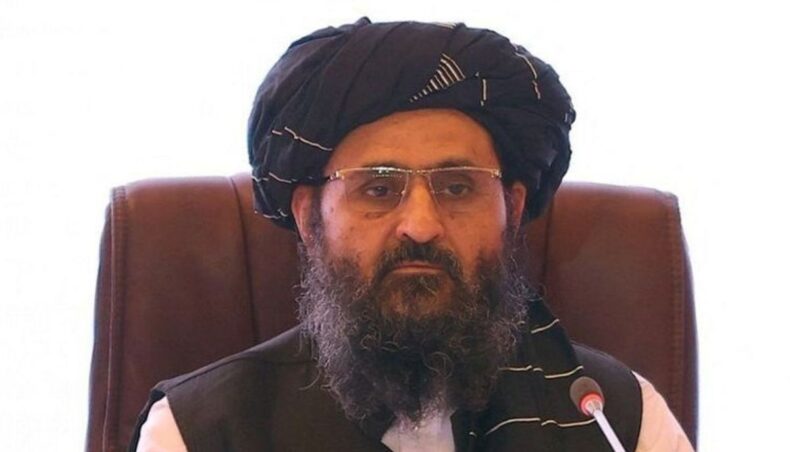In a rare appearance, Haibatullah Akhunzada attended the Taliban “Great Conference of Ulema” in the Afghan capital
The Taliban’s reclusive supreme leader, Mullah Haibatullah Akhunzada, recently attended a significant conference of spiritual authorities in Kabul, Afghanistan.
The three-day conference, which began on Thursday at Kabul’s Polytechnic University, was supposed to officially confirm the Taliban’s dominance over Afghanistan with the attendance of more than 3,000 fighters.
Akhunzada’s arrival on Friday was announced on state radio; the group has not been seen on camera or in public since returning to power in August of last year. Cheers and slogans could be heard, including one that said, “Long live the Islamic Emirate of Afghanistan,” the Taliban’s designation for the nation.
Akhunzada used the Arabic term for a spiritual conflict to declare in a speech that “the success of the Afghan jihad is not only a source of pride for Afghans but also for Muslims all over the world.”
Additionally, he is claimed to have suggested that the West should cease advising the Taliban on how to rule their nation.
“Why is the rest of the world meddling in our business?” He was said to have said. Why don’t you do this, why don’t you do that, they ask. Why does the outside world obstruct our work?
Additionally, Akhunzada offered prayers for the victims of the devastating earthquake that struck the country’s east last month and claimed more than 1,000 lives.
‘The Commander of the Faithful’
Despite media coverage being prohibited, there had been rumors about Akhunzada’s visit for days.
The Taliban’s birthplace and spiritual center, Kandahar, is where Akhunzada, who is thought to be in his 70s and has the title “Commander of the Faithful,” frequently stays. He leaves almost no digital traces, save for one undated photo and a few voice audio recordings.
The security alert was raised by the leader’s presence. On Thursday, two armed males were shot and killed nearby. Officials claimed that although the two were “immediately slain by mujahideen with the grace of Allah the almighty,” they had begun firing from a rooftop.
Women were not permitted to attend the meeting, despite media reports that the topic of girls’ schools reopening would be covered.
Male delegates will represent women, according to state broadcaster RTA’s interview with deputy prime minister Abdul Salam Hanafi on Wednesday. He explained that when their sons were present, it indicated that they were also involved.
“Women belong at home”
The first female governor of an Afghan province, Habiba Sarabi, told the media that the Taliban’s “mindset is that women should stay at home.”
The former governor claimed, “They don’t believe in human rights, which is why no woman was invited inside the Loya Jirga.”
The lack of representation of different political viewpoints at the gathering, according to political expert Lutfullah Lutf, and the exclusion of women “speak for the ideology of the Taliban.”
In a country where women make up 50% of the population, the group’s exclusion of them from the political sphere is “saddening,” Lutf told the media.
Since seizing control of the nation, the Taliban has maintained total control over decision-making, and they promoted the event as a venue for hearing different perspectives on the problems facing Afghanistan.
Sirajuddin Haqqani, the deputy Taliban leader, and acting interior minister, also spoke at the meeting on Friday. He claimed that the world was seeking inclusive democracy and education and that these concerns need time.
He remarked, “We are here to make our future according to Islam and national interests. This gathering is about trust and interaction.
Notably, the Taliban referred to the event as “the Great Conference of Ulema,” which is an Arabic phrase for religious academics and clerics. Loya Jirga is a traditional Afghan method for local leaders to voice their complaints to rulers.
The discussion takes place while US officials meet with representatives from the Taliban-led government in Qatar to discuss economic and humanitarian issues related to the earthquake that occurred on June 22.
Millions of Afghans are already being kept alive by overburdened relief organizations, which rushed supplies to the earthquake victims, but most nations gave the Taliban’s appeals for assistance only muted responses.
The international financial cutoff to Afghanistan has accelerated its economic decline and exacerbated its humanitarian difficulties. To survive, millions of people in the nation depend on foreign handouts













